People Make Roofing - Steve Little - PODCAST TRANSCRIPT
July 7, 2025 at 4:00 p.m.Editor's note: The following is the transcript of a live interview with Steve Little, president of KPost Roofing & Waterproofing and founder of National Roofing Partners. You can read the interview below or listen to the podcast.
Intro: Welcome to People Make Roofing, a call to action led by Roofing Talent America and RoofersCoffeeshop.com. We're tackling the industry's biggest challenges from outdated misconceptions to the widening skills gap. Our mission? To show the next generation the true potential of roofing, including the diverse opportunities, endless growth possibilities and a chance to make a lasting impact. Join us as we share unfiltered stories from the industry professionals across North America, inspiring and guiding the future of roofing.
Luke McCormack: Hello, this is People Make Roofing. I am your co-host, Luke McCormack, CEO of Roofing Talent America.
Heidi Ellsworth: And I am your co-host, Heidi Ellsworth with Roofers Coffee Shop and all of the coffee shops. We are so excited to be here today for People Make Roofing podcast with our friend and industry leader, Steve Little. Steve, welcome to the show.
Steve Little: Good morning to both of you at two o'clock over in your side of the world, Luke and I'm very early, Heidi, for you, so very happy and honored to be part of this.
Luke McCormack: Well, Steve, thank you.
Heidi Ellsworth: Let's start with an introduction. Let's start with Steve, if you could introduce yourself and let everybody know about your company.
Steve Little: Great. Well, my name is Steve Little. I'm head coach of the KPost team. We're a roofing and waterproofing and solar company in the commercial and residential side of the business. Also, I'm a founding partner of National Roofing Partners. We have 260 contractors around the country serving the regional and national clients.
Luke McCormack: Well, Steve, thank you so much for joining us. This is a very special one for me, Steve, because when I came over the pond to leave the UK market, to join the American market, I'd asked Reed Dribble if there's anyone that he could put me in touch with. It just so happened that you and Pam were over in Scotland and you were in this very office. You helped me pave the way in my mind of how to navigate the market and from what was McCormack Partners is now Roofing Talent America. You've been a great guide, a great mentor and a great friend to me, Steve. It's an honor to have you on the campaign and we're really looking forward to hearing more from you.
Steve Little: That's great, Luke. Heidi and I and other leaders in the industry are always looking for ways to step our game up, to step up the industry, to set standards that set the pace for the roofing industry and having you come across the pond and being part of what we're doing and helping us with our recruiting efforts and helping us have sustainable companies where you have educated us on how to keep people and how to recruit people has been very beneficial for KPost and our industry, so thank you for what you do as well.
Luke McCormack: Well, I appreciate that, Steve. Thank you so much. Steve, we obviously hand you on People Make Roofing in the past and this is your second appearance, so doubly grateful. But I think that opens up a great opportunity, because usually in our People Make Roofing episodes, we are creating content for teachers, parents, career guidance counselors, creating content for everyone outside the world of roofing to show them that roofing is not what you think. There is real career opportunities, real money to get made, amazing people. But today I think we can do something a bit different. I think today we can guide the episode around our readership on LinkedIn, which is mainly commercial roofing business owners.
I think there's a lot of value that we can gain from you, Steve and how you got to where you are today and the principles and leadership and recruitment and vision that you've implemented into your companies to make them such a success. I think the best way to start, Steve, is just to get a bit of a potted overview of how you got from where you were to where you are today. I think that would be a great start to this episode.
Steve Little: Well, I was very fortunate to find Keith Post, my partner and Jane Williams. The three of us founded KPost Roofing and Waterproofing back in January of 2004. Through that process, I've been even more fortunate to find people like you and Heidi in our industry. I have such a passion to make things better, whether it be in our own company or in our industry or in our communities. We're big believers by giving back because we're so fortunate and blessed to have the opportunities that we have in The States to be able to have a business and be able to go to market. The industry found me, I was in the sports license business for a number of years. My last stop was working with the Staubachs on a program that they had and when we've completed the program and sold it to a company over in the southeast, I was floundering.
I knew Keith Post through his friend and our friends that were cheerleading parents. One thing led to another and I was the vice president of business at Keith's company. For a number of years, we had a really a great run with the company that he had. Then the partners had a divorce and we said, "Hey, this is cool, this roofing gig, there's a lot of opportunity here." Food, water and shelter. Everybody needs a roof. I had not realized that being in the sports business of all the years I had been in. We started KPost company in January of '04. Last year the KPost team completed about 120 million worth of revenue with just under 500 employees. We have just been so blessed to be able to have a strong safety record, a strong backlog. We're blessed to be in North Texas.
Come on, Texas has been so good for business and Dallas has been such a great corporate reload area. We've been able to fight through a lot of the recession times that I've had back in '07 and '09 and then the blip that we recently had had and have come out on the other side. But look, Heidi, it's all about people. You can make the best product and you can have the best ideas, but if you don't have people to execute, if you don't have people that have bought into the, we call it the KPost crack, if you haven't been part of being a KPoster and realize that you fit and we fit and we fit in the industry, I don't know what to tell you. It's about people, dude.
Heidi, it was a little bit of both. I'd really like to say, "Oh no, we had this culture thing down," or "Oh no, we knew what we were going to do in business." We didn't get our first contract for the first five months and we had 11 people on payroll. We definitely needed to refill that kitty because we had put dollars in to start the company. But I remember our very first meeting with the 11 folks and we had four Latinos and we had seven of us. Keith, Jane and I were on the non payroll side of the business and we sat down and asked everybody in the room, all 11 of us and we said, "What is the most important thing?" We went around the room and we used to whiteboard and everybody put different things on the whiteboard.
I remember Luciano Perez and Luciano, FEI grad, he's our safety director, he speaks at Texas A&M University now. Today is his 21st anniversary at KPost Company, today. He and I were texting earlier this morning and he said to me, he said, "Steve, respect, if you can institute respect in this building, that will change the culture in the Dallas-Fort Worth marketplace." The workforces were treated as commodities. They were just a dime a dozen, almost like that football term, next person up, one person gets hurt, the next person up. There was no sense of pride, there was no sense of family, at least at the place that we had come from. I soon found out that that was the same way in the marketplace. The second part was give back. There was this sense of how fortunate we were to live in this country, to be part of what we're doing when we are successful, we need to be able to give back.
Another one was team before self. We had to be selfless If we were going to take 11 of us hungry folks that had this payroll and go out in the marketplace and rebirth, be this phoenix to come back out in the marketplace and be successful. I wanted to be involved in the industry. I wanted us to set the pace, set, the standard on safety and quality and value that we would give as a roofing company so that... Our industry was not very respected. I was in the industry for about 33 months before we started KPost. I was appalled by the lack of respect on the consumer level as well as on the commercial level about roofers. It was a necessary evil type thing. "Oh, we have to have them. Oh, we're going to put up with them," et cetera. I wanted to do something to change that. That's how we started.
Luke McCormack: See, I find that so interesting, Steve, because when I look at the industry, you're so right. It is all about the people. What is a company? It's a group of people. What is an industry? It's a larger group of people. Within the roofing industry, this isn't just in America, this is worldwide, there's a lot of problems around recruitment, around retention. The pot to get good quality staff from is getting smaller and smaller every day. The NRCA report is that 80% of roofing companies say that finding qualified staff is one of the number one problems. As well as that, 50% is the turnover rate within roofing. Now, construction's bad, but roofing is the worst. You've got almost 50% of owners heading for retirement four years from now, half of them will be at retirement age, but yet the demand for roofing projects, the demand for roofing people is going up.
So the numbers tell a story. The numbers tell the story that generally speaking, within the roofing industry, we can't find people and we can't keep people. When I look at that, I think, "Well, what are you doing to try and solve this problem? What is your employer brand?" You've just spoke a lot about yours there, about pride, about giving back, team before self, safety, quality, value. I know you've got a very good marketing mind, Steve, because you've were able to associate KPost with the Dallas Cowboys, which is literally one of the biggest brands in the world. But when it comes down to employer branding, recruiting people, retaining people, could you give us a bit of an insight into your playbook of how to do that? Because evidently a lot of people need help with it.
Steve Little: Wow, Luke, that's a scary statistic that's out there, very scary. Construction drives the economy as well. When you tie that element to it, if you end up not having people being able to be in construction, you're going to see a huge domino effect that happens in the country across the board. Let me throw a couple stats at you. Our salary turnover rate is less than 5%. Our blue collar worker field turnover is less than 30%. Meaning the turnover rate of the 30% comes with employees that are less than $20 an hour. Hearing your statistics, man, I just want to put my chest out and say, "Wow, we must be doing something right here." I think what we're doing is that we care about the people. The thing is that we understand that the people make the difference. I believe that roofing systems that's validated that there are different roofing systems that are out there.
I agree that there are different buying cycles that are out there. I believe there's different equipment out there, but you don't have people in all this? Roofing doesn't yet go on automated. We have our Lysters, we have our [inaudible 00:13:18], our things that help make our roofing more efficient and allows us to put down maybe a better quality product. But at the end of the day, there's a person that's behind it. The first thing I think that I would offer is I do not think that business owners, roofing owners, much less, a lot of construction business owners think about the emotional intelligence of their employees. There's more of a me instead of team, instead of us. When you create that environment of me instead of us, then people are just looking to take your company as the next step they're going to until they find the us, until they find the place that they can feel like they're part of a team.
I know that there are statistics and you've spouted them to me in the past, about it's not about the money, it's about the culture. It's not about necessarily about the culture, it's about the future, the security that they have knowing that they're going to have work going forward, that the owners are planning for succession. The owners are planning for the future. The owners are recognizing that there's going to be a change in the economy and what are they doing to protect their company, to protect their people, the employment that they have. It's much, much more than selling a roof system or selling a waterproofing system or servicing a client when they have a leak. You have to build an infrastructure. You have to build a brand. I think that's the first thing that the owners are missing are the emotional intelligence. Heidi, you have to see this. You visit a ton of roofing companies. You were just in Europe. You visited across the pond and were in the Olympics of the international roofing industry. How far off am I on people missing the emotional intelligence?
Heidi Ellsworth: No, you're a hundred percent right. You're a hundred percent right. It's something that the industry continues to fight because even as we bring those topics up and you and I know this, working with National Women in Roofing and the different things that we've done to bring more diversity and inclusion and equity, that emotional intelligence, sometimes people fight against it. It's just not something in the, I say this with all love, the macho construction image, but that's changing. There's a lot of really... I have to tell you, the teams that we traveled with over to Austria for the Young Roofers Competition were amazing and the mentors were amazing. Really looking at that, I've seen a huge change in the last 30 years, but there's still, if we're going to really take the talent we need to what you and Luke are saying from other industries, we have to get the word out that it's not like it used to be.
Steve Little: Somebody has to lead. Luke, when you said about what we... Or maybe Heidi, you said starting your company, what were the things that you wanted to do? We wanted to lead a change. I mean, the idea, Heidi, I remember when I was president of the MRCA and you had been to a number of regional presidents including the national office and said, "Hey, we want to start this campaign. We think that there's an opportunity to help fill in to the workforce development. Plus, we think there's a missing item here that we are not paying attention to, that we have that machoism going on in all the trades, et cetera." You wanted to lead the way. I was like, "When do we start? How do we do this?"
Heidi Ellsworth: Where do we go?
Steve Little: I'm so excited because there was this... Our best estimator at the time was Eileen Struble and she was a woman and she had a degree in fashion design. I know that when she would do her estimates, she would be designing the roof and she'd be decorating that building and she would always want to make sure that she offered the best value for the dollars that the person was going to be spending. But they all at the same time, she wanted to decorate it. She wanted to do something with it. I said, "There's so much talent that we're missing, why don't we do this?" We went and we did that. You and Karen and the teams have done a great job of expanding that. I think we have like 2,500 women.
Heidi Ellsworth: 2,500.
Steve Little: 2,500.
Heidi Ellsworth: 2,500 Members.
Steve Little: Just a little less than six years ago, zero.
Heidi Ellsworth: Zero. I know.
Steve Little: To see that happen was caring about the emotional intelligence and we had a lot of roadblocks we had to go over to get to that with you and the team leading the way. Luke, our caring about others has really caught fire. You see it happening across all segments, but this generation of workers is very in tune to caring for the world, caring for people. If your company is not engaged with that, if you're not finding a platform that you can go and be part of and make part of your identity, part of your brand, you're missing the boat. You mentioned that we're tied to Dallas Cowboys. We're also the roofing and waterproofing and solar company for the Texas Rangers. We've done all of the arenas that are in the marketplace. We purposely went after that business because we wanted to have a sports theme inside the company and tied to that sports theme, we want to win.
Let me tie it to giving back. When there was the March of Dimes happening out there, we wanted to be the largest donator in the construction industry because we wanted to win. We wanted to win the Super Bowl on that. We knew there was no way we could compete with American Airlines and Bank of America and all these other people, but we knew that we could compete A, with subcontractors and B, if we stretch, we might be able to compete with some of the general contractors and the asset managers, the CBREs and stuff like that that are out there. We did, we were the top 10 and we were the number one construction team that did that. But it was part of the give back concept. It was tying to a brand concept and it was time to caring for others and team, collectively, all tying to the emotional intelligence of the moment.
We see a change happening in the industry when you have a Charles Antis that comes in and fundamentally, single-handedly, convinces a hundred of contractors to donate their services to the Ronald McDonald House. When you see that happen, I get a little goosebumps talk about this. This is really cool to see that they're understanding the emotional intelligence and the obligation that we have as an industry to do something. Recruiting people, you have to have that in your company. If you don't, that turnover rate is going to prove to be true. I'm embarrassed as a leader in our industry, I'm embarrassed that that could possibly be happening in roofing.
Heidi Ellsworth: Well and one of the things as you're talking about this, Steve, that really hits home with me, too, is you have to walk the talk. There's a lot of people who will talk about it, talk and try to put on a good show, but they aren't. They're not actually walking that talk. They don't have goals. That's one of the things that I just heard from everything that you just said is goals for the company that are centered around your people. Those goals of giving back and involving them, the goals of retention, the goals of caring about their family's safety and I think the one you said from Luciano, which is probably my favorite, is respect. I think there's nothing... Respect. How as you are looking, we're at the beginning of '25 and now that you have another team and we want to talk about that succession, too, how do you go about as a company from that first 11 when you're going around putting it on a whiteboard to today, putting together goals for retention, for recruitment and to really make sure that you are keeping that culture thriving?
Steve Little: Heidi, I think the first thing you have to do is look in the mirror and realize that we're great roofers. We're not great recruiters. You need to go find professional help. This isn't a plug for Luke, but it is a plug for Luke because the reality is that when you have professional people helping you, when you have an issue with your heart, you don't go to your general practitioner, you go to a heart specialist. Well, in this particular case, the people are the heart of our business and so you need to have professional help get you there. I think the differentiator between the companies you see that are successful, that have great people and the ones that don't is that they went and got help. Whether they had a fabulous HR person that came in and they really compensated them well, they went outside their 50 person company, HR person, they found a 250 person HR person to make that happen.
If you have that type of person in place, they're going to hire the Luke McCormacks of the world. They're going to hire the people of the world that are going to bring you a greater selection of talent and you need to pay for it.G et over it. People losing people and replacing people is so much more expensive than paying for good people. It's a lesson that I learned when I'm in the sports marketing business and it's a lesson that I've been able to pass on to other folks. My partner Keith and Jane, they don't want to pay for recruiters. Are you freaking kidding me? Put it on LinkedIn.
We'll have people troll for this. We'll have people troll for that. The reality is that if you find a really good professional, they've done all the trolling and if you find a professional that's in our industry, they know the retreads, they know the people jumping from Texas to Tennessee, to Florida to Ohio, etc. to do that. I think the first thing you have to do is to understand that you're really good at what you do and what you're not very good at, you need to hire and let those people do the work. I don't want my GP or my dentist working on my heart.
Luke McCormack: Steve, that's an amazing point. I find that some of the most successful people in the industry, they all used outside help to get their people. Charles Anderson, you mentioned, we've done a great job with Charles. Greg Bloom, who's been part of the campaign, we've worked with Beacon. Reid Rebel who was on the campaign, he used external recruiters. I think certain people have got the short term mindset in terms of they want to keep the money. Other people can see the bigger picture, the longer picture and they say, you know what? What is it, a few months salary is the fee? Then they're going to get me the best candidates in the market." Obviously, I think it's worthwhile, but I think the proof is in the pudding. When you learn from other successful people in roofing, they are using external help.
When I look at businesses that have grown, Steve and businesses that don't, there seems to be two common factors that stops businesses from growing. One is processes and systems, but the second one is second-tier management and actually delegating. For the people within your business, basic human need is stability and certainty. They want to know where they're going, what's next for them? If you don't grow the company, they can't move up the career ladder. There's nowhere for them to go and there's a million people out there competing to hire them. There's a lot, like I said, 49.2% of American roofing business owners right now are heading for retirement stage and a lot of them, they don't have second-tier management in place. They're not able to delegate. They've got a lot of it in their head. When you look to the future for the industry, Steve, how important is it that people bring in second-tier management that they delegate and they build future plans not only for those second-tier managers, but also for themselves so that one day they can successfully exit their business and have it running for them?
Steve Little: So great, multiple questions. I'm going to unpeel some of that, but before I unpeel it, I'm still paying Reid Rebel lunches for introducing us together. Okay. This has been the gift that keeps on giving. Reid is on our National Roofing Partners board and what a great contribution that he has made for our industry, for our country, but also to me personally. I have a great deal of respect for him. I think I'm going to start at the very beginning because if you recruit right, you're not out there recruiting your second, your management team to come in to replace you, you're growing your management team to replace you. We have built... At KPost company, we have three tiers of leadership that's in place. They all started when we hired Beacon Exit strategies, Kevin Kennedy and Joe Bozzano 11 years ago and said... We heard them at an MRCA conference, which is a plug to go see, go to your regional conferences, participate in your regional conferences. You are going to find nuggets that are going to really help your business and then be open-minded enough to hire the professionals that are there.
They came in and said, "Hey, your baby boomers are talking to the Gen X and Gen Y and you're not speaking the same language. Okay, there's a problem here. You need to create a platform," and there's a number of platforms out there, but we chose EOS under the book Traction, Gina Wickman. We started a process where we took our managers and made them officers about five years ago after we were a few years into EOS. Those managers became vice presidents and we started right then to start the succession process of who was going to take Keith, Jane and Steve's place. We didn't want to go from the outside, we wanted to build it from the inside because they understood our culture, our purpose, our brand.
They understood that the emotional intelligence of employees and people are the most important assets you have. I don't care about the cranes, the lulls, the sky tracks, the [inaudible 00:27:06], all the people are the most important asset you have and you have to invest in them to do that. Secondly, we brought in Chris Flickinger from Flickinger and Associates and he is a mind performance coach and he proceeded to take those seven people that were in our Level 10 team and put them through a think like an owner process for three years. At the end of two years, he put them into a challenge for them to determine who were going to be the two people to replace Keith and Steve. They went through a year process of campaigning, researching, developing. They picked two people. We picked, Keith and I picked Matt Janes that was running our residential division that was part of the level 10 team, but he had just joined the level 10 team in the last year.
After much deliberation and working with Chris Flickinger and his team and the psychologists and trainers that are on that team, determined that we needed to throw a little piece into the toilet bowl and stir it up so that we still had our DNA in the process of decision because we were acting more as a board. But at the same time, we wanted to add some youth to the group. John Barker, our senior vice president runs the business side. Jeff Hammond, senior vice president is running the operations side and Matt is running the revenue and brand and residential side. The three of them are the new Keith, Steve and Jane at KPost at the same time all this is going on, we created a climbers group. Now, the climbers group is 25 to 35 people that we see as potential. We've already promoted three people as directors out of there.
One is running our project management team, the other is running our operations team and the other is in our purchase and acquisition team of materials and services. I think there are 12 people in that group and we've mixed residential and commercial in that same group. Right now and since May of 2023, John, Jeff and Matt run the day-to-day. Unfortunately for Jane, Jane is still there. We haven't finished with the financial services side of our business. We've reduced some of her duties, safety that she managed for a lot of years because we think safety is part of bringing our men and women home at night. It should be a profit center, not a cost center. That went to John Barker. We started reducing some of Jane's duties and the three of us are now working more on the business instead of in the business.
You'll hear Greg Hayne speak about that. He has a new program that's going that is helping people, the afterlife, what do you do after the roofing life and how to live your best life and have to have your best life. Again, an outside consultant that knows what they're doing in that side of the business. You hire the professionals, you get out of their way, you empower your people, you invest in your people and you'll also turn out, hopefully, to have the same type of statistics that we have with a 5% turnover rate in the salary side and less than 30% on the workforce side.
Luke McCormack: Wow, Steve, they're amazing insights and you're so right. I think that just plugging in second tier management, it's not always better than growing from within. I think what you're doing is right. I'm actually implementing EOS myself and I love to speak to you about that when we're in Florida together next week. But that is amazing stuff, Steven, for other roofing business owners out there in that want to get to the size of a KPost that is the playbook right there. That's really insightful stuff. Steve, thank you for sharing.
Steve Little: It's been good for us. It doesn't work for everybody, but I think Heidi will tell you that it takes three years to implement something. If somebody tries it and they stumble their first year, they stumble their first six months and they get frustrated with it, knowing the hell with all this organization and processes and systems and consultants and "I don't need this crap. I just need to go sell roofs and stuff." They're not thinking about keeping their people and they're going to be part of the statistics. Heidi, am I right? It takes over three years to really make something work.
Heidi Ellsworth: It really does. We've gone through the same thing with EOS. We're still trying to find those people and we're working through it, but that system has made all the difference to us and to our people and bringing them into that process and understanding it. Yeah, it takes time. It takes time to put all of that together and people need to be patient. But I have to tell you, Steve, I am always learning from you and I'm always inspired. Thank you so much.
Steve Little: You're welcome.
Heidi Ellsworth: You said a couple of things there that I'm like going, "Okay, I'm bringing this back."
Steve Little: Well, you're already planning for succession, Heidi, so you did what we did, what Keith Jane and I did is 10 years ago. We knew that I would be 68, Keith would be 70. I can't tell you Jane's age and that we knew that... One other point Luke, I want to make is that if you don't do this now, you're going to lose those people to somebody else and they're going to be your competitor. All the people that you invested in all along, if you don't provide them with a ladder to be able to reach a certain area, then you're going to lose them. You need to protect your foundation besides thinking about the future.
Luke McCormack: Amazing, amazing, Steve. Steve, you always pack so much value into such a short period of time and it's amazing to see. I think when you're speaking, Heidi and I are just like our jaws are dropping and we're trying to hold it together.
Steve Little: I'm so fortunate to have 25 years of experience outside the roofing industry, so that really dates me. To be able to bring things I learned in that side of the business over to this side of the business and all the things that the great people that we've met in the roofing side have taught us. It's a humbling time. Your comments are humbling. Thank you.
Luke McCormack: Thank you for joining, giving us your time, your energy. Thank you for everything you do for the industry and you're doing more tomorrow. You're over to Phoenix. You are speaking of exit succession planning. You're always somewhere. Thank you for everything, Steve and I'm looking forward to seeing you next week.
Steve Little: Very much so. You got to give back, Luke. We're good.
Luke McCormack: Thank you, Heidi. We have all the People Make Roofing videos on the Roofing Talent America YouTube page, but you can view it on our YouTube page or Roofer's Coffee Shop. You can read it, you can listen to it, you can get the transcript. It's all there. All we try to do is give back to the industry that's given us so much. Thank you to the American roofing industry. Thank you, Heidi. Thank you, Steve. Stay tuned for our next episode coming out next week.
Heidi Ellsworth: Have a great day. Thanks.
Outro: Thanks for listening to People Make Roofing, together with Roofing Talent America and RoofersCoffeeShop.com. We hope to shape the future of our industry. Share this episode and keep the conversation going because people truly make roofing.

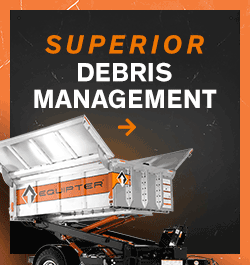


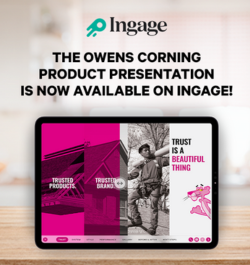








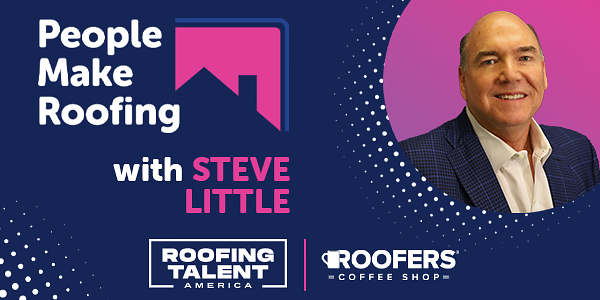
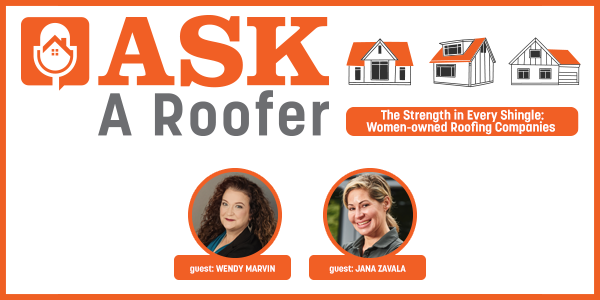

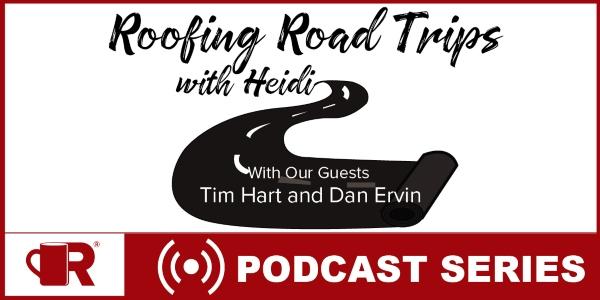

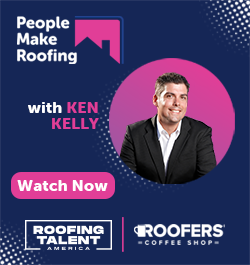



Comments
Leave a Reply
Have an account? Login to leave a comment!
Sign In